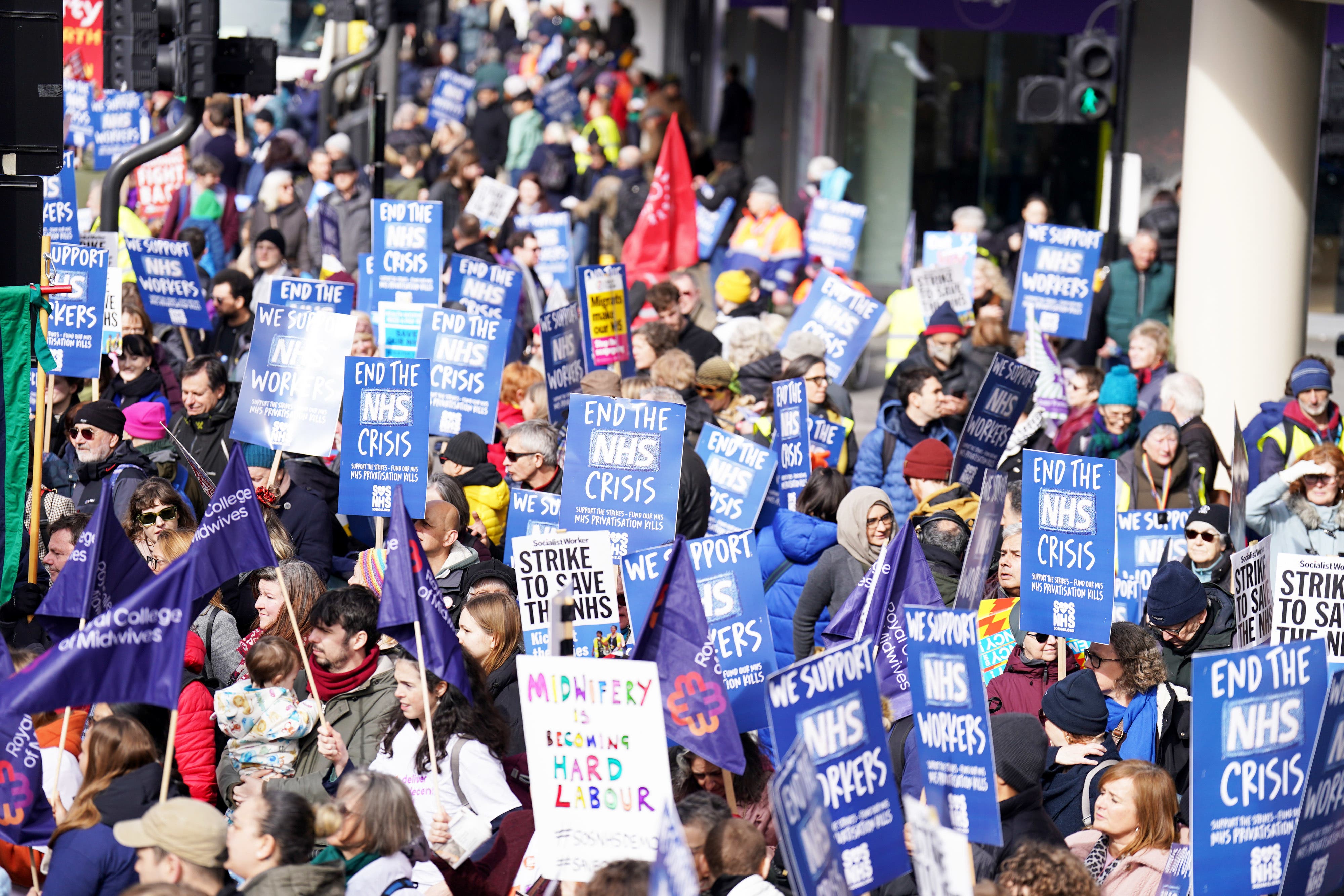Further strike action could be dangerous – the government must find a resolution now
Editorial: As has been clear from the outset, sooner or later the strikes will have to end, and they can only do so through talks

The Royal College of Nursing’s demand for better pay and conditions for its members has always had a good deal of merit. The nation that “clapped for carers” during the pandemic implicitly recognises the moral debt it owes to those who placed their lives on the line to look after others. Many paid the ultimate price.
Years of public-sector pay freezes, and then below-inflation rises, have eroded the earnings of all NHS staff. This is an obvious problem that affects the training, recruitment and retention of sufficient nurses, which in turn adds to the pressure on the wards and in the clinics. The nurses, junior doctors, and wider NHS staff retain a good deal of public sympathy and support.
The next few days, however, will be critical in seeing how far the RCN, and other unions, can press their claim for higher pay. On Tuesday, the innocuously named NHS Staff Council will in effect decide whether secretary of state Steve Barclay and NHS trust managers will be able to impose a pay settlement on nursing staff.
Under the hitherto obscure rules of the council, if a weighted majority of the 14 groups of workers it represents have voted to accept the government’s offer, then it will soon be implemented. This means that, because the largest union, Unison, along with the GMB, the Royal College of Midwives and others, has voted “yes” to the pay offer, and to calling off further industrial action, the imposition of the deal is certain. Whether the RCN members like it or not, they will be getting a pay rise, albeit on the government’s terms.
Coming as it does after a successful legal bid by ministers to cut short the current RCN action, this leaves the nurses and their leader, Pat Cullen, in a more difficult (and isolated) position. Ms Cullen recommended that RCN members accept the offer and end the strikes – and her advice was rejected, but only by 54 per cent to 46 per cent. Might the fact that other colleagues have said yes to the offer, and that RCN members will shortly be receiving a rise and a one-off cash payment, be persuasive enough to ensure the rejection of further strike action? Or has Mr Barclay’s aggressive legal action simply angered the nurses, and made them more determined to fight?
In her interview with The Independent, Ms Cullen, conscientiously serving her members’ interests, is under no doubt as to the gravity of what another round of strikes would mean. The industrial action could disrupt patient care until Christmas, inevitably leading to cancelled procedures and adding to misery. That, in turn, could turn public opinion against the nurses’ action, particularly as other NHS employees would have to cover for striking RCN members.
Hospitals and clinics depend on intense teamwork, across disciplines as well as professional and union demarcations; such dedication is one of the strengths of the NHS. It could be undermined by a seemingly endless series of disputes. Matters are made worse where minimum levels of care cannot be guaranteed.
Matthew Taylor, chief executive of the NHS Confederation (and no government stooge), warns that the NHS is “under immense strain”, saying: “Were this industrial action to roll on into the summer, then it would make it almost impossible for us to meet the targets that we have, in backlog and other areas of patient care.”
The nurses are not alone, however, with the junior doctors still in dispute, as well as radiographers, physiotherapists and others. The absence through strike action of smaller but key groups will cause disproportionate damage to patient care. Should all of those groups choose to strike simultaneously, the results could be still more dangerous than what has been experienced thus far.
As has been clear from the outset, sooner or later the strikes will have to end, and they can only do so through talks and, ultimately, an agreement. The RCN members, along with the doctors, know that they can’t settle without some hope that the chronic staff shortages will be filled, and the loss of skilled personnel stemmed. Their working lives will be rendered impossible, and patient safety unacceptably compromised, unless the NHS is stabilised.
Ministers are not unaware of the facts of life with which the NHS must contend. The mutual recognition of these, and of the national economic and political constraints any government must work within, would be a promising place for peace talks to begin.



Join our commenting forum
Join thought-provoking conversations, follow other Independent readers and see their replies
Comments